Is ‘Happily Ever After’ Just a Fairy Tale? Exploring the ‘Hedonic Treadmill’ Theory
We often delight in watching fairy tales where characters achieve their “happily ever after,” finding joy and contentment as they live out their dreams. These stories captivate us because they offer a vision of perfect, unending happiness. However, in real life, this kind of lasting contentment often remains elusive. While fairy tales end with a satisfying conclusion, our experiences can be quite different. The Hedonic Treadmill Theory suggests that, unlike in fairy tales, our happiness is not permanent. Instead, no matter how much we achieve or how many dreams we fulfil, our sense of satisfaction tends to return to a baseline level. This means that the joy we feel after reaching our goals often fades, and we are left in search of the next source of happiness. Recognizing this pattern can help us adjust our expectations and focus on finding enduring contentment in our everyday lives, rather than expecting a perpetual fairy-tale ending.This approach contrasts the idealized happiness of fairy tales with the more complex reality of human contentment, framing it within the context of the Hedonic Treadmill Theory.
Have you ever achieved something you thought would make you completely happy, only to find that the joy didn’t last as long as you expected? Someone was thrilled to get a promotion to a senior management position after years of working hard. Initially, the new role brought immense satisfaction, but over time, the excitement wore off, then seeking even higher positions or additional accolades, only to find that the initial sense of accomplishment quickly diminished. Another example is entering in a new romantic relationship, which initially brought great joy and fulfilment. However, over time, the initial excitement and novelty wore off, and began to notice flaws and challenges in the relationship. Working hard to set a goal to achieve a certain body weight and fitness level. After months of dedication, reaching the target and felt a surge of pride and happiness. However, even after adjusting to new physique, began to focus on achieving an even more ideal body image, or starting to worry about maintaining the current weight, revealing how satisfaction with physical appearance can be fleeting. Often we see similar cases in our surroundings.
Maybe you’ve dreamed of landing the perfect job, buying your dream house, or finding true love, but the excitement fades and you’re soon looking for the next big thing. Could it be that the idea of ‘happily ever after’ is just a fairy tale? The Hedonic Treadmill Theory suggests that no matter how much we get, our happiness always seems to stay just out of reach. So, is it really possible to find lasting happiness, or are we all stuck in a never-ending cycle of wanting more.
As human beings, we often find ourselves on a never-ending quest for happiness, chasing after new accomplishments, possessions, or experiences, believing they will bring us lasting joy. Yet, despite our efforts, we frequently end up feeling unsatisfied. This phenomena is much like the Hedonic Treadmill Theory, which suggests that our happiness works in a way similar to a treadmill: no matter how much we gain or achieve, our sense of contentment tends to return to a baseline level. Just as a treadmill keeps us running in place without getting us anywhere, our pursuit of happiness can feel endless and elusive. So, why are we never truly content? Let’s explore this idea and uncover what it means for our quest for genuine happiness.
Canadian psychologist Philip Brickman and American psychologist Donald Campbell introduced the Hedonic Adaptation Theory in the year 1971, which sheds light on why even the most intense levels of happiness achieved through significant effort and struggle tend to be short-lived. According to this theory, no matter how great the joy or satisfaction we experience, our sense of happiness eventually returns to a baseline level. This means that the initial thrill of a major accomplishment or new possession fades over time, leaving us seeking new sources of joy. The theory explains that our emotional responses adapt to changes, making extreme states of happiness feel temporary and leading us to continually chase after the next source of fulfilment.
During my six-year research journey, earning my doctorate was the ultimate goal, I believed it would bring me lasting happiness. Achieving this milestone brought undeniable joy and a sense of accomplishment. However, that happiness didn’t last as long as I had anticipated. After the initial excitement wore off, I found myself feeling unexpectedly empty, aimless, and lost.
This shift in my emotional state underscores a key aspect of the Hedonic Adaptation Theory: even significant achievements and intense moments of joy can quickly fade, leading us to search for new sources of fulfilment. This personal experience highlights how our sense of happiness often returns to a baseline level, illustrating the cyclical nature of our emotional responses No matter how much we achieve or how many goals we accomplish, we frequently find ourselves back at square one, searching for the next source of joy.
Since we all go through phases where our interest wanes and we struggle to find new sources of motivation, how can we overcome the hedonic treadmill and sustain happiness? Start by practicing gratitude and focusing on meaningful experiences rather than material possessions. Build and nurture strong relationships, set and pursue goals that align with your core values, and engage in mindfulness and meditation to stay grounded in the present. Maintaining physical health through regular exercise and a balanced diet, helping others, and embracing personal growth and challenges can also foster lasting contentment. By avoiding comparisons with others and focusing on your own journey, you can create a more stable and enduring sense of well-being despite the natural fluctuations in happiness.
Dr Haseena Kabeer
This distinguished individual embodies a multifaceted professional with a rich tapestry of achievements across education, training, philanthropy, and writing. Armed with an impressive academic profile including an M.A. in English, B.Ed., M.Phil, P-G-DELT, IELTS, and a Ph.D. in South Asian Cultural Studies, she demonstrates a profound commitment to learning and scholarship. Her tenure as an Educator (English) at EFIA Abu Dhabi, UAE, showcases her dedication to shaping young minds in diverse educational settings, from schools to universities, and online platforms. Concurrently, her affiliation with Toastmasters International for nine years, where she served as an Area Director for Rajasthan Zone,India and earned the prestigious DTM (Distinguished Toastmaster) award, reflects her exceptional leadership and communication skills. Moreover, she is an accomplished writer, having published numerous articles in eminent national and international platforms. Beyond academia, she has made significant contributions to corporate training, conducting workshops and motivational sessions on topics such as Emotional Intelligence, Stress Management, and Communication at Workplace for organizations like GAIL India Ltd. With her blend of academic prowess, teaching expertise, leadership acumen, and writing talent, she continues to inspire and empower individuals in their personal and professional growth endeavors.




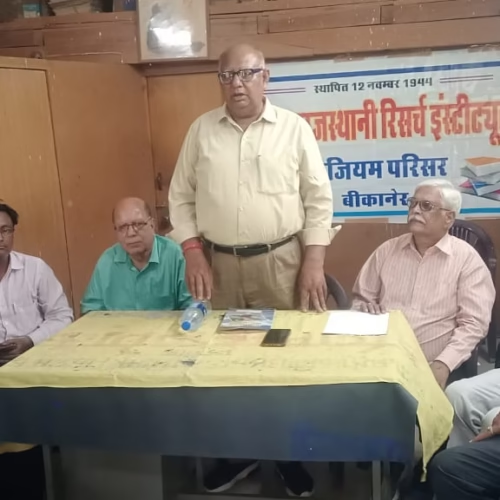

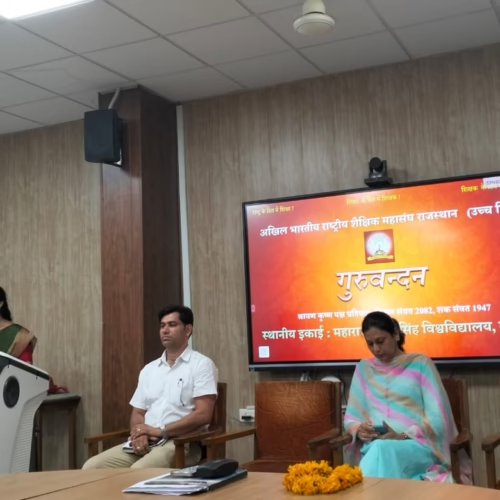
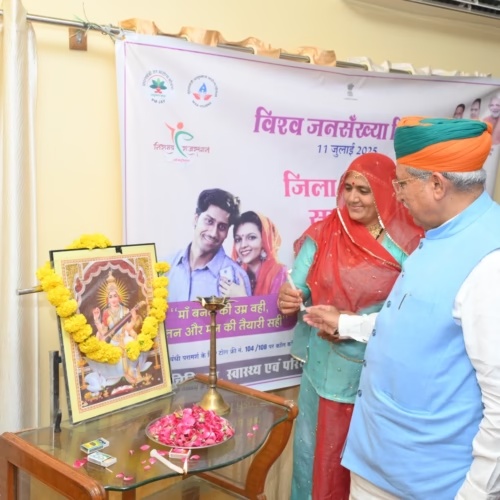
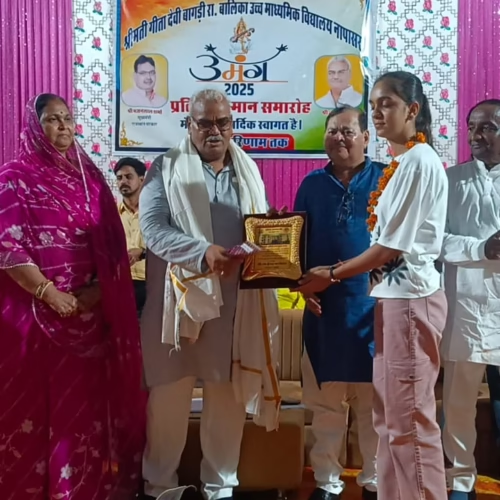
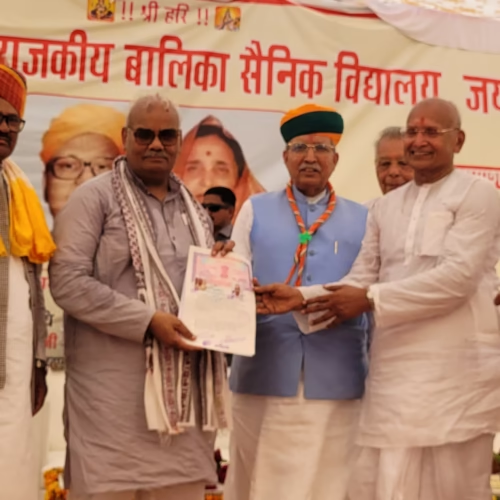
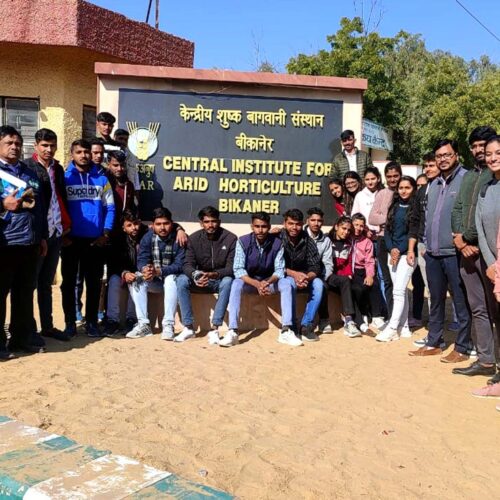





Add Comment